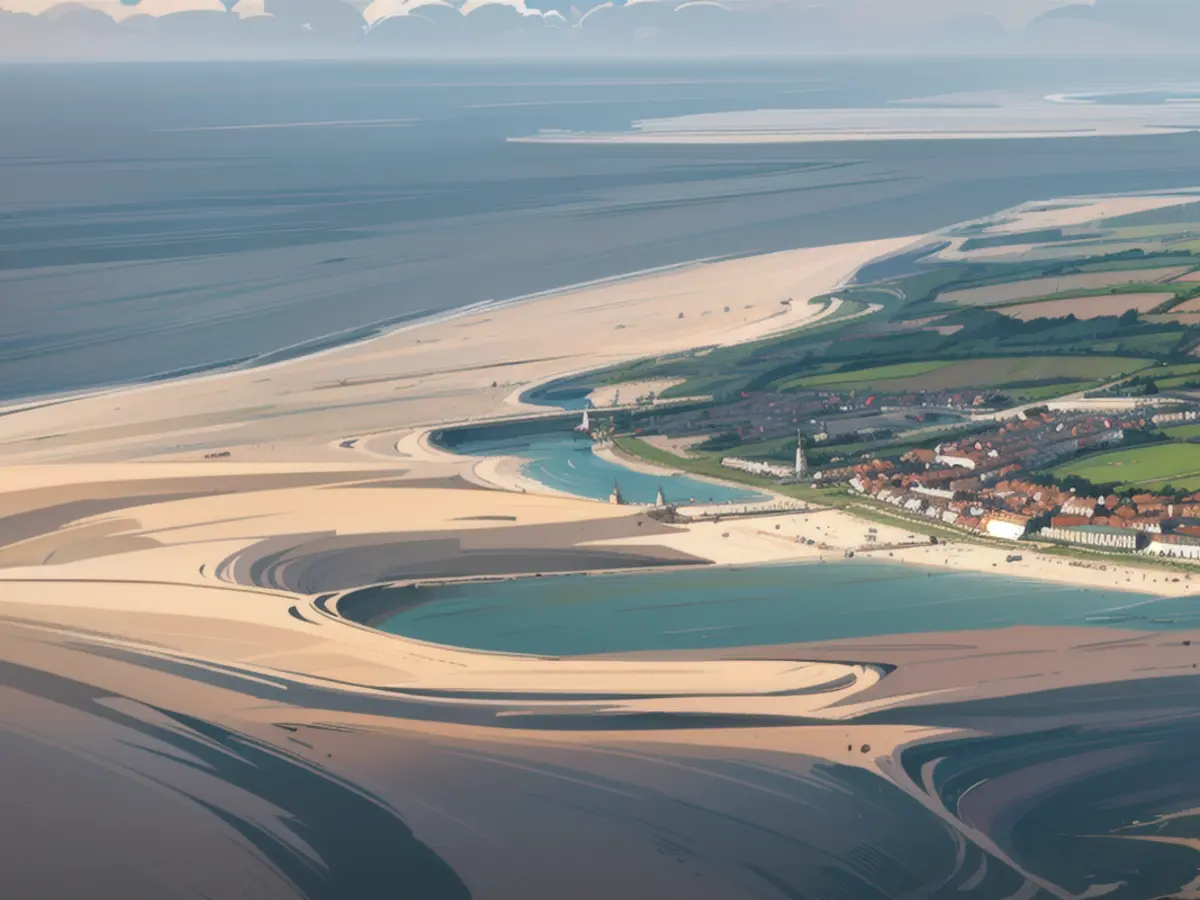Nature or the natural world, considered as a system. - Isles demand cessation of proposed gas extraction. The Islands request a stop to the planned natural gas extraction. Islands urge halting planned natural gas extraction. Isles seek to prevent planned natural gas extraction.
Following approval from the Netherlands for a contentious gas exploration project in the North Sea near the Wadden Sea, the islands of Borkum and Juist are calling on the Lower Saxony state government to halt the project on the German side. The mayors of both islands have penned a letter to Environment Minister Christian Meyer (Greens), stating that "the proposed gas project is not in line with German marine and climate protection targets or the status as a UNESCO World Natural Heritage Site." They urge that the Lower Saxony planning approval process be terminated and drum up support by addressing Minister President Stephan Weil and Economic Minister Olaf Lies (both SPD).
A consortium fronted by the company One-Dyas plans to extract gas from a North Sea field. To achieve this, a production platform will be constructed on Dutch sovereign land around 23 kilometers northwest of Borkum. According to the plan, gas will be extracted in both Dutch and German territories, near the Lower Saxony Wadden Sea National Park. To carry out the drilling, permits from both nations are needed. The Dutch Economic Ministry approved the gas exploration on Wednesday. The German approval process is managed by the Lower Saxony Mining Authority.
Though the impending gas exploration doesn't directly affect the World Natural Heritage Site, it does have a bearing on the entire Wadden Sea ecosystem. The mayors question how the technology, which has wrought significant damage on the Dutch mainland for decades and perpetually unsettled the population, can now be adopted for the sea, a crucial tool in the fight against climate change and a habitat for various living creatures.
There has been a diverse range of opinions on the project within the red-green state government recently. Environment and Energy Minister Christian Meyer recently stated that the need for gas exploration off the coast of Lower Saxony, in light of his ministry's climate goals and Lower Saxony's broader context, "no longer exists fundamentally." He also expressed that the project is not approvable from his perspective. Minster President Stephan Weil has yet to publicly voice his thoughts. "This is not a matter of political caprice," said the SPD politician in June 2021. The ability to receive a permit will principally hinge on the evaluation.
For further information on the German planning approval process, One-Dyas's gas exploration project, and the associated communications, see these links:- Information on the German planning approval process- Communication from the German Economy Ministry (29.5.) (Dutch)- Communication from Environmental Aid and the Islands (31.5.)
Read also:
- The Hague agreed to a controversial natural gas exploration project in the North Sea, but the islands of Borkum and Juist urge Germany's Lower Saxony state government to halt their side of the production, citing environmental concerns and marine protection targets.
- Olaf Lies, the Minister President of Lower Saxony, and Stephan Weil, the Economic Minister, have been addressed by the mayors of Borkum and Juist, who are affiliated with the SPD, to intervene in the planned natural gas extraction.
- Natural gas production from the North Sea field, which requires a production platform and permits from both Dutch and German authorities, is controversial due to its potential impact on the ecosystem of the Wadden Sea, a UNESCO World Natural Heritage Site.
- Natural resources expert Christian Meyer, the Environment and Energy Minister, expressed his concern that the proposed gas exploration project in Lower Saxony doesn't align with Germany's climate goals or the site's natural heritage status.
- One-Dyas, a consortium leading the gas exploration project, attracted scrutiny from environmental organizations like Unesco and “Environment Aid," as well as the local islands, due to the unstable nature of the extraction process.
- The Green Party's Christian Meyer and the SPD's Stephan Weil both agree that the need for gas extraction off Lower Saxony's coast is not critical, given the climate change goals in both Lower Saxony and Germany as a whole.
- Olaf Lie, the Lower Saxony SPD chairman, who emphasized that political decisions should not be made arbitrarily, will likely follow the evaluation and permit process instructions beyond June 2021 to determine whether or not the gas exploration project will proceed.
- The German Press Agency reported that Juist and Borkum are part of a long-standing campaign to protect the natural resources of Lower Saxony, Schleswig-Holstein, and the Netherlands, agreeing with Christian Meyer that "the proposed natural gas extraction is not acceptable under any circumstances."
- Environmental concerns surrounding natural gas consumption extend beyond the North Sea, as countries like Germany aim for alternative energy sources, like renewables, to lessen their dependence on fossil fuels and mitigate the effects of climate change.
- Stephan Weil and Olaf Lie, both prominent members of the SPD, reaffirm that their primary concern is to balance Germany's energy needs with environmental protection, making a decisive stance on the natural gas production project in the North Sea an important issue for their party and country.








